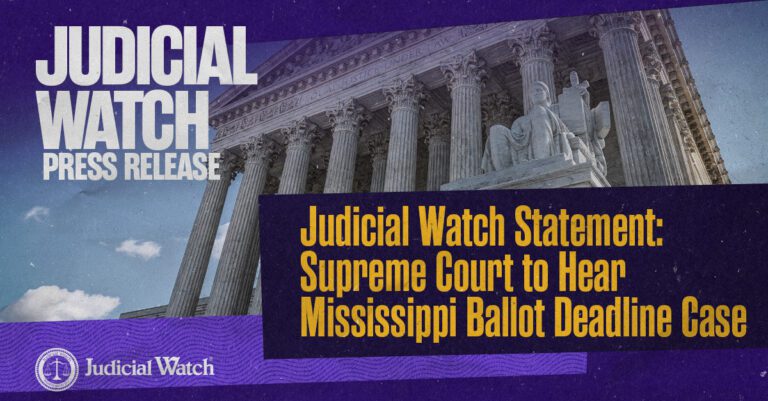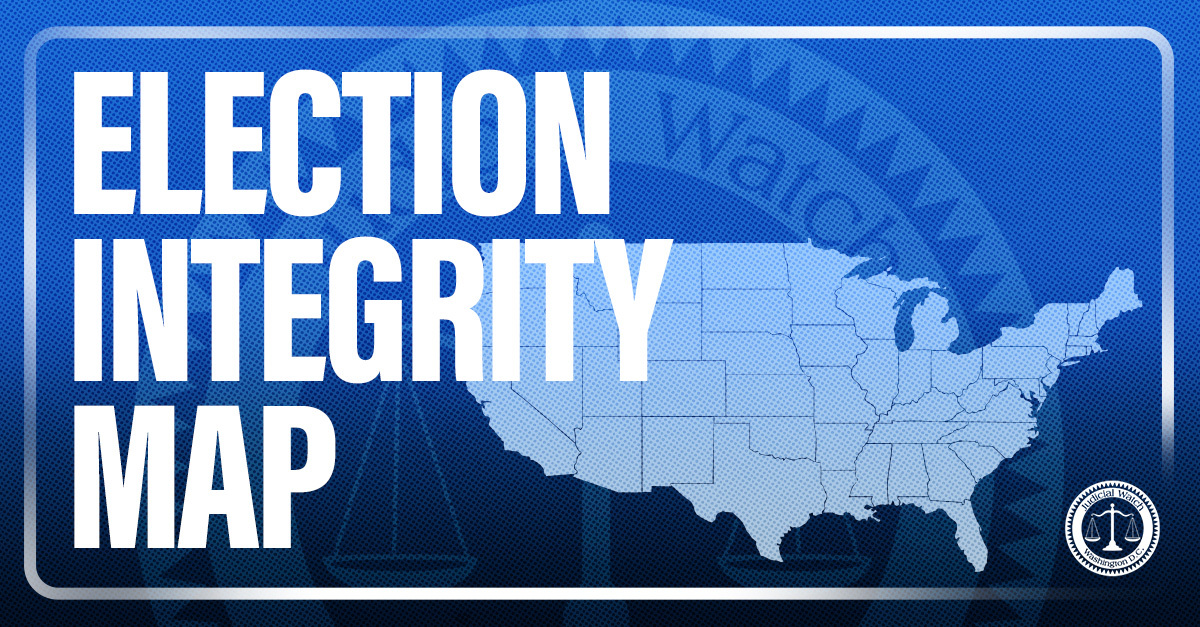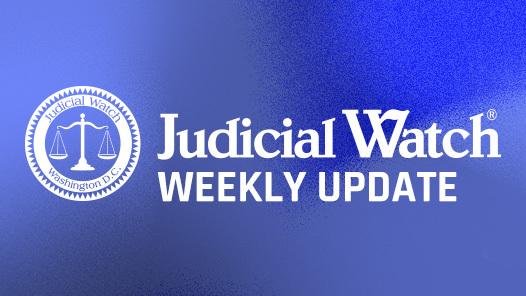
House of Representatives Files Amicus Brief in Support of Judicial Watch Taxpayer Lawsuit to Prevent D.C. Government from Illegally Spending Taxpayer Money

‘The Local Budget Act is a naked and unabashed effort to strip Congress of powers vested in it by Article I of the Constitution, and to circumvent… the one constitutionally-appropriate way to proceed.’
– House of Representatives’ amicus curiae
(Washington, DC) – Judicial Watch announced today that on March 31, 2016, the U.S. House of Representatives filed an amicus curiae brief urging a U.S. District Court to deny the D.C. government’s efforts to dismiss a Judicial Watch lawsuit, which seeks to prevent D.C. from illegally expending tax dollars. The House amicus brief was filed in the U.S. District Court for the District of Columbia (Clarice Feldman v. Muriel Bowser and Jeffrey S. DeWitt (No. 1:15-cv-01967)).
The House filing comes in support of a November 2015 lawsuit filed by Judicial Watch on behalf of Clarice Feldman, a longtime taxpayer and resident of the District of Columbia. The Feldman action seeks to ensure that no taxpayer money is spent by local D.C. politicians under the District’s Local Budget Autonomy Act. In February 2016, the D.C. government filed a Motion to Dismiss the Judicial Watch November lawsuit.
In its amicus in support of the Opposition to the Motion to Dismiss filed by Judicial Watch, the House declared:
The Local Budget Act is a naked and unabashed effort to strip Congress of powers vested in it by Article I of the Constitution, and to circumvent the constitutionally-prescribed legislative process that the District and its supporters previously and repeatedly have acknowledged is the one constitutionally-appropriate way to proceed.
In other words, the Local Budget Act turns the Appropriations Clause upside down, and is inconsistent with Congress’s plenary authority over all District appropriations. The only constitutionally permissible manner by which the District may achieve budget autonomy with respect to locally-derived funds is for Congress to convey that authority to the District by way of the normal legislative process – and Congress has not yet done that.
In Feldman’s Opposition to the Motion to Dismiss, Judicial Watch takes strong issue with the District of Columbia’s continued attempts to circumvent federal law, arguing:
Regardless of whether it is sound policy for the District of Columbia to have budget autonomy, [the defendants] cannot ignore the law. Yet, they do. Since October 1, 2015, Defendants have been illegally incurring obligations and expending local taxpayer funds pursuant to the Fiscal Year 2016 Budget Request Act of 2015 (“FY16 Budget Request”) that have not been appropriated by Congress and presented to the President for signing. As a District taxpayer since 1979, Plaintiff challenges Defendants’ lawlessness.
The District of Columbia City Council passed the Local Budget Autonomy Act of 2012 in an effort to spend tax dollars without an appropriation from Congress, as required by the Home Rule Act. The Act was signed by then-Mayor Vincent Gray and ratified by D.C. voters in April 2013. Upon the advice of the then-D.C. attorney general, Gray and then-Chief Financial Officer Jeffrey DeWitt subsequently withdrew their support of the law and notified the City Council that they would not enforce it. The D.C. Council filed suit to compel Gray to enforce the law. In 2014, U.S. District Court Judge Emmett Sullivan found the Budget Autonomy Act to be unlawful and permanently enjoined all parties from enforcing the law:
The grant of legislative authority to the District in the Home Rule Act is broad …, but Congress included several restrictions to that authority in Sections 601, 602, and 603. These included congressional authority to veto District legislation and the authority to legislate for the District on any matter.
***
As a native Washingtonian, the Court is deeply moved by Plaintiff’s argument that the people of the District are entitled to the right to spend their own, local funds. Nevertheless, the Court is powerless to provide a legal remedy and cannot implement budget autonomy for the District.
The City Council subsequently appealed the District Court’s ruling to the U.S. Court of Appeals for the District of Columbia Circuit. But, prior to an opinion being issued by the Circuit Court, Muriel E. Bowser was elected Mayor of the District. On March 24, 2015, Bowser filed a motion to dismiss the appeal for mootness and requested that the appellate court vacate the District Court’s ruling. On May 27, 2015, the Circuit Court ruled in Bower’s favor. The Judicial Watch action on behalf of Clarice Feldman was filed in the U.S. District Court on November 6, 2015, followed by the DC Motion to Dismiss.
“We welcome the action of the House of Representatives in standing up for District taxpayers, the rule of law and constitutional mandates,” said Judicial Watch President Tom Fitton. “Mayor Bowser and the rest of the D.C. government continue to think they can violate federal law with impunity. It bears repeating that it is a federal crime to spend federal dollars without congressional authorization.”

















